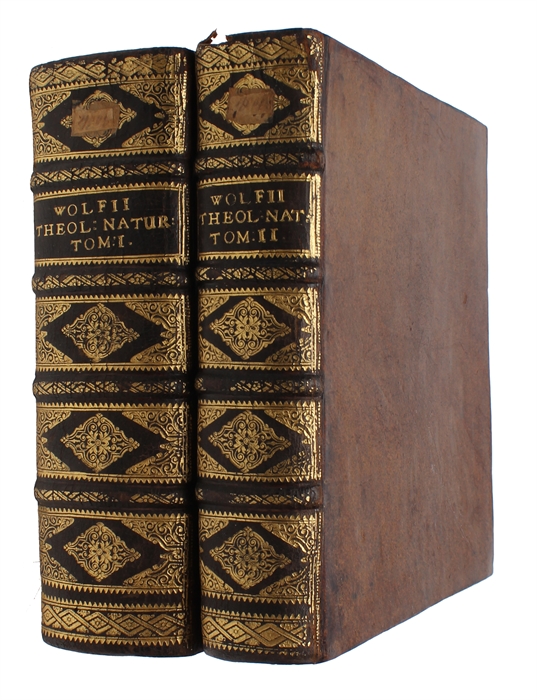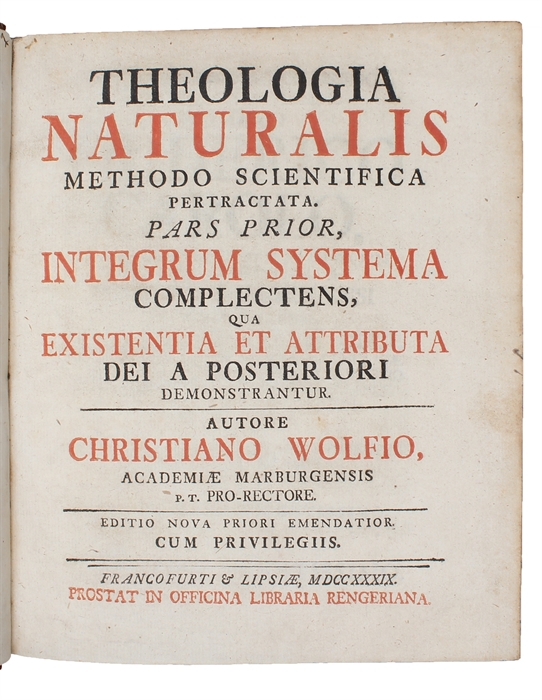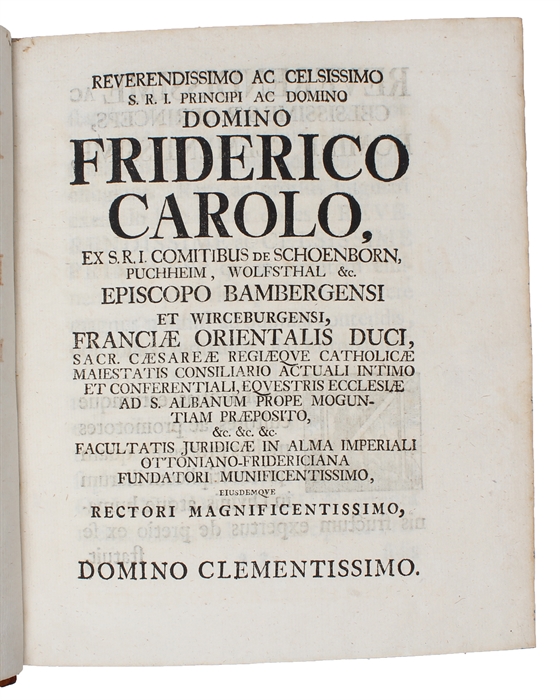"THE GREATEST OF ALL DOGMATIC PHILOSOPHERS" (KANT)
WOLFF, CHRISTIAN.
Theologia Naturalis Methodo Scientifica petractata. Pars Prior (...). 2 vols.
Frankfurt & Leipzig, Rengeriana, 1739 & 1741.
4to. Uniformly bound in two contemporary full calf bindings with four raised bands and richly gilt spines. Small paper-label pasted on to top of spine. Board with a few dots and marks. Internally fine and clean, a nice set. Printed on good paper. (22), 1084, (34) pp. (20), 736, (20).
Later improved edition of Wolff's large and most important work on "natural theology". The work is the culmination to his treatment of ‘special metaphysics.’ Defined as "the science of those things that are possible through God," natural theology represents the end of metaphysical inquiry insofar as metaphysics is concerned with the realm of all possible objects.
According to Kant, in the (Preface) to the Critique of Pure Reason (2nd ed), Wolff is "the greatest of all dogmatic philosophers." Wolff's "strict method" in science, Kant explains, is predicated on "the regular ascertainment of principles, the clear determination of concepts, the attempt at strictness in proofs, and the prevention of audacious leaps in inferences".
Wolff's A POSTERIORI PROOF for God's existence (the primary topic of discussion of Volume 1) is as follows:
The human soul exists or we exist. Since nothing is without a sufficient reason why it is rather than is not, a sufficient reason must be given why our soul exists, or why we exist. Now this reason is contained in ourselves or in some other being diverse from us. But if you maintain that we have the reason of our existence in a being which, in turn, has the reason of its existence in another, you will not arrive at the sufficient reason unless you come to a halt at some being which does have the sufficient reason of its own existence in itself. Therefore, either we ourselves are the necessary being, or there is given a necessary being other and diverse from us. Consequently, a necessary being exists (§24, Natural Theology vol. 1).
Wolff's A PRIORI PROOF for God's existence (the primary topic of discussion of Volume 2) is as follows:
God contains all compossible realities in the absolutely highest degree. But He is possible. Wherefore, since the possible can exist, existence can belong to it. Consequently, since existence is a reality, and since realities are compossible which can belong to a being, existence is in the class of compossible realities. Moreover, necessary existence is the absolutely highest degree. Therefore, necessary existence belongs to God or, what is the same, God necessarily exists (§21, Natural Theology vol. 2).
Order-nr.: 60979



